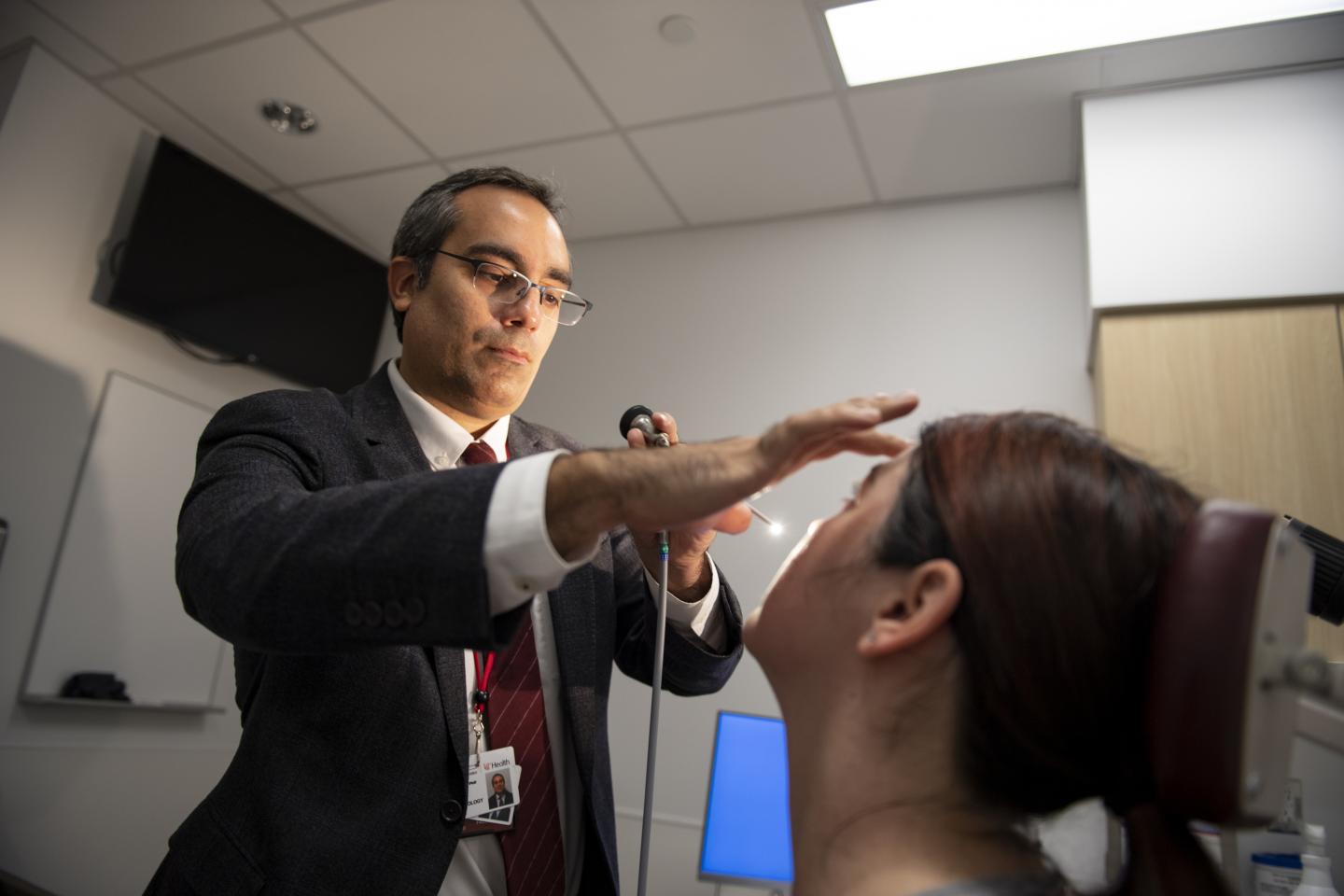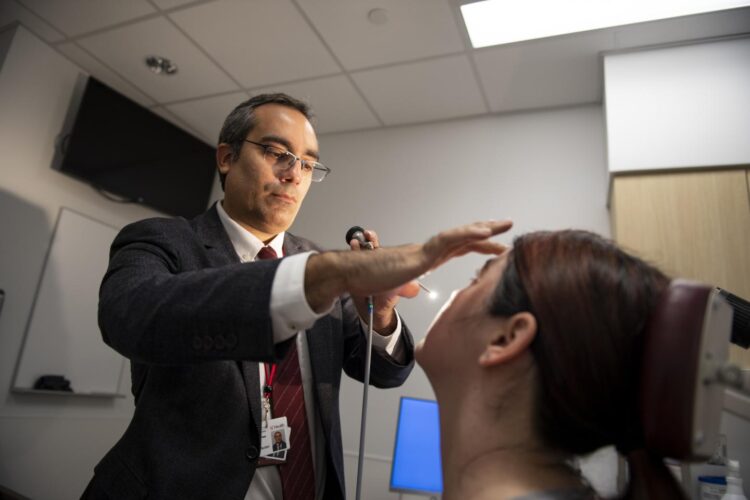University of Cincinnati researcher says depressed mood and anxiety may be symptoms of a COVID-19 impact on the brain

Credit: Colleen Kelley/University of Cincinnati Creative + Brand
Depressed mood or anxiety exhibited in COVID-19 patients may possibly be a sign the virus affects the central nervous system, according to an international study led by a University of Cincinnati College of Medicine researcher.
These two psychological symptoms were most closely associated with a loss of smell and taste rather than the more severe indicators of the novel coronavirus such as shortness of breath, cough or fever, according to the study.
“If you had asked me why would I be depressed or anxious when I am COVID positive, I would say it is because my symptoms are severe and I have shortness of breath or I can’t breathe or I have symptoms such as cough or high fever,” says Ahmad Sedaghat, MD, PhD, an associate professor and director of rhinology, allergy and anterior skull base surgery, in the UC College of Medicine’s Department of Otolaryngology-Head and Neck Surgery.
“None of these symptoms that portended morbidity or mortality was associated with how depressed or anxious these patients were,” explains Sedaghat, also a UC Health physician specializing in diseases of the nose and sinuses. “The only element of COVID-19 that was associated with depressed mood and anxiety was the severity of patients’ loss of smell and taste. This is an unexpected and shocking result.”
Sedaghat conducted a prospective, cross-sectional telephone questionnaire study which examined characteristics and symptoms of 114 patients who were diagnosed with COVID-19 over a six-week period at Kantonsspital Aarau in Aarau, Switzerland. Severity of the loss of smell or taste, nasal obstruction, excessive mucus production, fever, cough and shortness of breath during COVID-19 were assessed. The findings of the study are available online in The Laryngoscope.
First author of the study is Marlene M. Speth, MD, and other co-authors include Thirza Singer-Cornelius, MD; Michael Oberle, PhD; Isabelle Gengler, MD; and Steffi Brockmeier, MD.
At the time of enrollment in the study, when participants were experiencing COVID-19, 47.4% of participants reported at least several days of depressed mood per week while 21.1% reported depressed mood nearly every day. In terms of severity, 44.7% of participants reported expressing mild anxiety while 10.5% reported severe anxiety.
“The unexpected finding that the potentially least worrisome symptoms of COVID-19 may be causing the greatest degree of psychological distress could potentially tell us something about the disease,” says Sedaghat. “We think our findings suggest the possibility that psychological distress in the form of depressed mood or anxiety may reflect the penetration of SARS-CoV-2, the virus that causes COVID-19, into the central nervous system.”
Sedaghat says researchers have long thought that the olfactory tract may be the primary way that coronaviruses enter the central nervous system. There was evidence of this with SARS, or severe acute respiratory syndrome, a viral illness that first emerged in China in November 2002 and spread through international travel to 29 countries. Studies using mouse models of that virus have shown that the olfactory tract, or the pathway for communication of odors from the nose to the brain, was a gateway into the central nervous system and infection of the brain.
“These symptoms of psychological distress, such as depressed mood and anxiety are central nervous system symptoms if they are associated only with how diminished is your sense of smell,” says Sedaghat. “This may indicate that the virus is infecting olfactory neurons, decreasing the sense of smell, and then using the olfactory tract to enter the central nervous symptom.”
Infrequent but severe central nervous system symptoms of COVID-19 such as seizures or altered mental status have been described, but depressed mood and anxiety may be the considerably more common but milder central nervous symptom of COVID-19, explains Sedaghat.
“There may be more central nervous system penetration of the virus than we think based on the prevalence of olfaction-associated depressed mood and anxiety and this really opens up doors for future investigations to look at how the virus may interact with the central nervous system,” says Sedaghat.
###
For the cross-sectional telephone questionnaire study: The two-item Patient Health Question (PHQ-2) and the two-item Generalized Anxiety Disorder questionnaire (GAD-2) were used to measure depressed mood and anxiety level, respectively during COVID-19 and for participants’ baseline pre-COVID-19 state.
Funding for the study came from Kantonsspital Aarau, Aarau, Switzerland.
Media Contact
Cedric Ricks
[email protected]
Original Source
https:/
Related Journal Article
http://dx.





